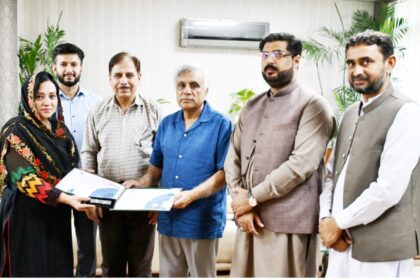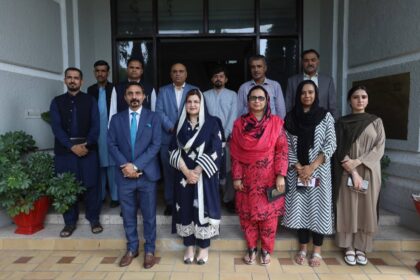Federal Minister Shaza Fatima Khawaja presented Pakistan’s policy statement at the WTDC high-level plenary in Baku, outlining a comprehensive agenda to accelerate digital transformation under the Connect Pakistan vision.
The minister stressed that universal, meaningful and affordable connectivity forms the core of Connect Pakistan 2030, stressing that connectivity is no longer a luxury but a lifeline for citizens, businesses and public services across the country.
Under the leadership of the prime minister, the government has enacted the Digital Nation Pakistan Act to modernize systems and steer the country toward sustained digital growth. The minister highlighted citizen-focused services, smart city applications and advanced IoT networks as visible outcomes of this reform, and noted international recognition of Pakistan’s improvements in e-governance, cybersecurity and digital policy.
Digital inclusion was framed as a central driver of Pakistan’s sustainable development. Shaza Fatima Khawaja pointed to increased female digital participation, targeted AI skills training programs and a growing ecosystem of women-led startups as major achievements that are expanding access to economic opportunities.
Concrete 2030 targets were reiterated, including nationwide 100 Mbps speeds, fibre connectivity to 10 million homes and positioning Pakistan as a regional hub for AI and cloud services. The minister also said Pakistan is taking a leadership role in digital cooperation within the Global South and intends to be a role-shaper in AI governance rather than a passive adopter.
Khaja urged global partners and the private sector to accelerate investment in digital infrastructure, noting that a sustainable digital future depends on simultaneously closing gaps in access, usage and affordability so all segments of society can benefit from technological progress.
Pakistan’s ICT sector performance underpins these ambitions. Export remittances from ICT rose 19.5 percent, reaching US$1.443 billion from July to October of FY 2025–26, with October 2025 alone contributing US$386 million, a 17 percent year-on-year increase. The IT and ITeS industry recorded a US$1.274 billion trade surplus, and ICT now stands as the top-performing services sector in the national economy.











